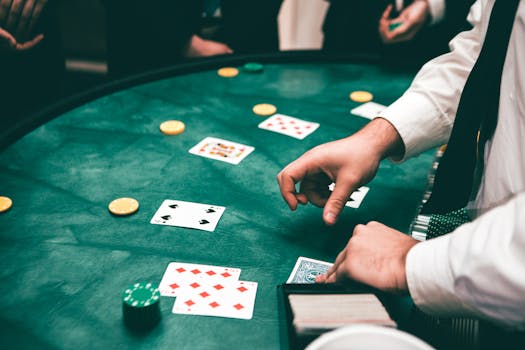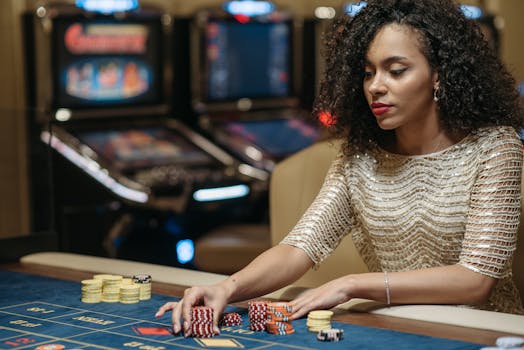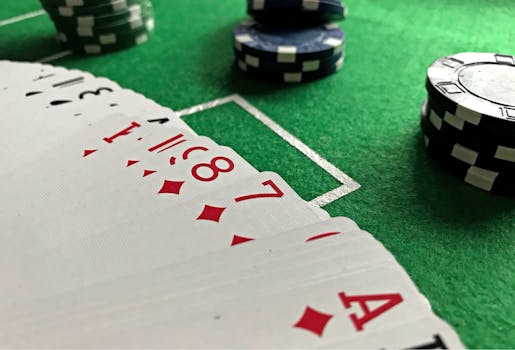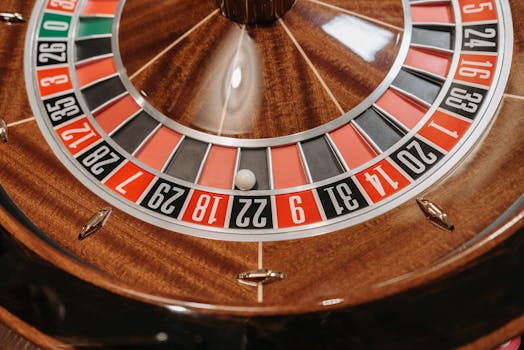Unraveling the Myth of Born Gamblers
Gambling, a popular activity enjoyed by millions worldwide, often brings up the question: are some people naturally predisposed to be better gamblers? The concept of "born gamblers" has been both romanticized in popular culture and debated in academic circles. This article dives deep into this intriguing notion, exploring whether gambling prowess is a matter of destiny or if it's a skill that can be cultivated.
Understanding the Myth of Natural Gambling Talent
The myth of born gamblers suggests that certain individuals possess an innate ability to gamble more successfully than others. This idea is often linked to factors like better intuition, a greater propensity for risk-taking, and an inherent ability to read people and situations. However, scientific research offers a more nuanced view.
Genetic Factors: Some studies suggest that genetics may influence gambling behavior. According to research, genetic predispositions can affect personality traits such as impulsivity and risk-taking, which could, in turn, impact gambling activities (source: National Institute of Health). However, there's no conclusive evidence directly linking specific genes to gambling success.
Psychological Factors: Psychological traits such as emotional resilience, decision-making skills, and analytical abilities also play crucial roles. These skills, however, are not solely inherent and can be developed over time.
Learning and Experience: The Counter-Argument
Against the backdrop of the born gambler myth, there's a strong argument for the role of learning and experience in gambling proficiency.
Skill Development: Gambling, like any other activity involving skill, can be significantly improved with practice and study. Professional poker players, for example, spend hours studying strategies, reading opponents, and understanding probabilities.
Cognitive Training: Gamblers can enhance their performance through cognitive training exercises designed to improve problem-solving skills, emotional control, and memory. This training can help mitigate the effects of impulsivity and improve strategic thinking, essential in games like blackjack and poker.
Advantages: The main advantage of viewing gambling as a skill rather than an innate ability is that it empowers individuals to improve through effort and education, potentially leading to more responsible gambling.
Disadvantages: This perspective requires time and dedication to learning and practice, which might not appeal to everyone.
The Role of Environment and Culture
The environment and culture surrounding an individual can also influence gambling behaviors and success.
Cultural Influence: In some cultures, gambling is seen as a communal activity and is more widely accepted and practiced, potentially leading to a higher proficiency through communal learning and shared strategies.
Educational and Social Environment: Access to resources, peer influences, and educational opportunities can also shape one's gambling skills. Those who grow up in an environment where strategic thinking and risk assessment are encouraged may perform better in gambling scenarios.
Advantages: Acknowledging the role of environment suggests that changes in one's surroundings and inputs can enhance gambling skills.
Disadvantages: It may also imply that those in less conducive environments have a harder time achieving gambling success, potentially reinforcing socioeconomic disparities.
Practical Examples and Evidence
Studies and anecdotal evidence show that many of the world's top gamblers have honed their craft over years of practice and study. For instance, famous poker players like Daniel Negreanu and Phil Ivey are known for their rigorous approach to improving their skills, suggesting that success in gambling can be attributed more to learned skills than to innate abilities.
Conclusion: Demystifying Born Gamblers
The notion of born gamblers is more myth than reality. While genetic and psychological factors may influence predispositions towards gambling behaviors, success in gambling is largely a result of learning, experience, and environmental influences. This perspective not only democratizes gambling success but also promotes a healthier, more responsible approach to gambling.
If you're interested in gambling, focus on developing your skills and understanding of the game. Remember, responsible gambling is crucial; set limits and gamble safely. For those looking to improve, consider educational resources and training tools available online or seek advice from experienced gamblers. Embrace the journey of learning and let go of the myth of the born gambler.

.png)





